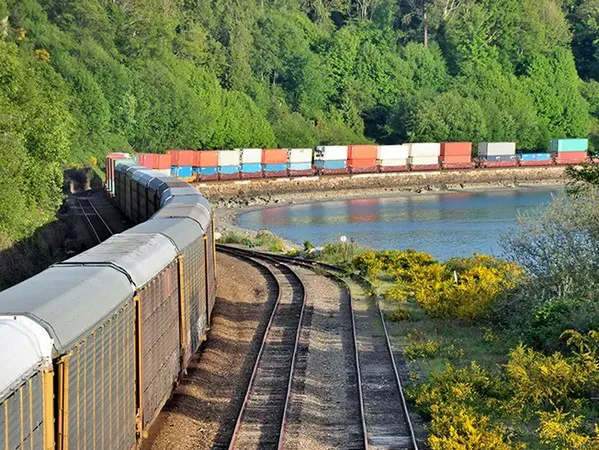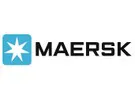Discover how businesses are reducing their CO2 emissions by using Maersk’s zero-carbon rail services provided across Germany.
A.P. Moller - Maersk, the global integrator of container logistics, has partnered with ERS/BoxXpress.de – a Hamburg-based railway company that exclusively operates emission-free electric container trains in Germany using hydropower renewable energy.

Hydrogen fuel cells contain a zero-carbon fuel that can be converted into electricity with high efficiency. While hydrogen has previously been utilised to power passenger cars and buses, the CapO2 free intermodal transports solution is now being supported by the Maersk Mc-Kinney Møller Center for Zero Carbon Shipping, as part of their development of sustainable fuels.
The electric container trains will be used to connect the seaport of Bremerhaven with important economic centres located across the country, including Nuremberg, Munich, Stuttgart and Mannheim. ERS/BoxXpress.de already facilitates 85% of Maersk's block-train rail services in Germany, saving over 9,000 tons of CO2 from being released into the atmosphere annually.
Our aim is to be able to convert 100% of our inland rail network, a year from now, by Q1 2022. This is another example of Maersk’s effort to help customers reach their goals to reduce their CO₂ footprint.
Johannes Tenschert,
Maersk Intermodal Sales Manager, Germany
Maersk’s rail transport in Germany is set to become 100% carbon free by the start of 2022, setting ambitious carbon-neutral targets across its intermodal offerings. Customers who rely on Maersk as a supply chain partner can bring their products to market with a minimal environmental impact. With Maersk's German block-train network already benefiting from emissions-free modal transport, businesses operating in the region can significantly reduce their carbon footprint when compared to using traditional container rail services.
Global warming and climate change have become central topics in Germany, with the 2019 Federal Climate Change Act being ruled as unconstitutional by the First Senate of the Federal Constitutional Court on 29 April 2021, after considering that the legislation did not set substantial enough targets for emission reductions before 2030.
These future obligations to reduce emissions have an impact on practically every type of freedom because virtually all aspects of human life still involve the emission of greenhouse gases and are thus potentially threatened by drastic restrictions after 2030, reads the Bundesverfassungsgericht Press Release No. 31/2021 of 29 April 2021.
Environmental non-governmental organisations (NGOs) in Germany had long campaigned that the 2019 Federal Climate Change Act failed to drive enough action on climate change until 2030, and would create a severe burden on younger generations to reduce their carbon emissions drastically in the decades to come.
Along with the target to achieve carbon neutrality across all container ships by 2030, businesses utilising Maersk's intermodal logistical services will be able to continue sourcing materials from multiple regions around the world whilst supporting their own sustainability targets.
the world whilst supporting their own sustainability targets.
For more information: maersk.com
